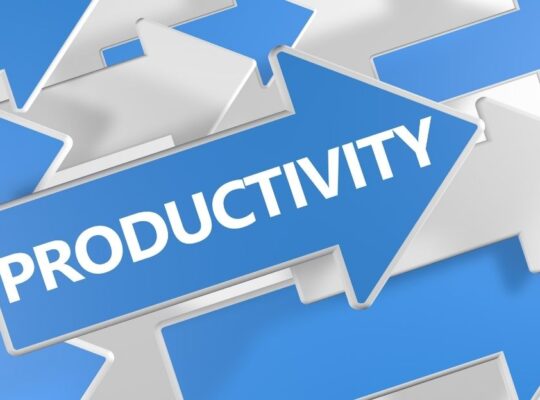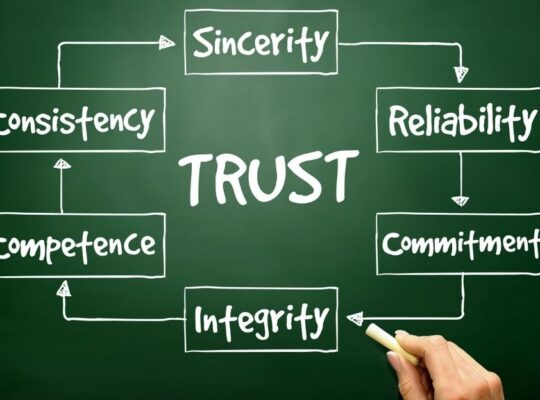In this article: What It Means To Be Proactive and how this attitude can help you in your personal development journey.
Learning to be proactive means taking control of your life so that you can accomplish your dreams. Are you tired of feeling like life is just something that happens to you? Are you ready to be more active in solving your problems? Then it is time you adopted a proactive attitude and become a better problem solver.
Below, we share all the reasons why a proactive mindset can help improve your life, and then we share with you proven strategies that, if you practice them regularly, will help you become a more proactive problem solver in your life.
If you are not familiar with the term, proactive is like the opposite of reactive. Instead of waiting for things to happen to you (reactive), you go out and pursue them and make things happen for you (reactive). Being proactive requires that you take responsibility for your life and actions, that you pursue your goals and dreams actively, and that you think ahead to avoid potential problems or challenges along the way.
So, what does this have to do with problem solving? Well, a reactive person waits until a problem arises, and then looks for ways to address it. They just assume everything is fine, which works fine until it doesn’t.
A proactive person analyzes the situation and considers would could go wrong, and then finds ways to either prevent that problem from occurring or has a plan in place for if that happens. Being proactive actually helps you to have fewer problems and worry less because you know you are always prepared.
Learning to be more proactive in your life, whether it is in your career, your financial stability, or your personal life, means that you consider your options, weigh alternatives, and make thoughtful choices that can help you achieve your goals.
When you are simply reactive to the world, you are more likely to be influenced by the forces of life circumstance, and luck.
When you are proactive, you predict problems, seek possible solutions, and realize that you are prepared in any circumstance. This gives you the confidence to push ahead, take more risks, and try new opportunities because you know that you can handle whatever life throws your way. In short, learning to be proactive is a way to take control of your life, to choose the path that is best for you, and to accomplish whatever it is you set your mind toward.
How to Take Control of Your Life
If you want to learn to have more control over your life and become proactive, you first have to embrace some new ways of thinking. Here are three mindsets that are necessary for being a proactive problem solver.
You Are Responsible For What Happens In Your Life
Learning to accept responsibility for what happens in your life is crucial for being proactive. Taking responsibility means that you recognize how your choices led you to your present situation. It acknowledges that your actions or choice to take no action contributes directly to the outcomes in your life. And taking responsibility means that you accept all of your decisions moving forward.
You Are Clear About What You Want To Do In Life
Becoming proactive to achieve your goals means you understand what it is you want to accomplish in life. Being proactive requires a clear path, a sense of direction, a way forward. When you know what it is you want to achieve, you can then actively choose paths that will lead you there. But, when you do not know where you want to go, it’s hard to know which is the right choice.
You Have Confronted Your Fears
Becoming proactive in your life requires that you recognize and work to overcome the fears that have been holding you back. Those fears prevent you from accomplishing your dreams, and if you want to become proactive, you must have confidence in your ability to meet and overcome the obstacles of life.
The Benefits Of Being Proactive In Your Life
When you learn to become more proactive in your life, you place your future and the achievement of your dreams within your own control. You are not sitting around waiting for good things to happen to you; you are going out and making them happen.
You are not spending time being stressed out by unexpected circumstances of life’s little emergencies. You are executing your back-up plan and moving forward.
Learning how to be more proactive allows you to take the necessary actions to put yourself on a path to where you want to be in life. It provides you with power over your future and gives you confidence that you can handle anything that comes your way.
When you decide to become more proactive in your life, you will enjoy many professional and personal benefits to this type of mindset and way of thinking. Here are just a few!
You Can Realize Your Dreams
When you can solve problems proactively, it allows you to pursue your goals and create a plan that will get you where you want to be in life. Living in a reactionary way means you allow life to just happen to you, which can often derail your efforts to create a better life for yourself. Learning to problem solve proactively will help keep you on your chosen path and realize your dreams much more easily.
You’ll No Longer Be Afraid of Change
Living a life of reaction forces you to live in fear of the unexpected and of change. Reactionary living means you only consider the consequences once they have happened when you are often not in a place to handle them very effectively. This can make it feel very intimidating to consider possible failure, which can lead you to take fewer risks in your life.
When you become a more proactive problem solver, you have a plan for the future. You have thought through possible setbacks and changes that can occur, and you know that you are ready to confront these, if necessary. That means, change is not so scary, and you can stop fearing it in your life.
You’ll Make Better Choices
Waiting for things to happen in life before preparing to deal with them means you are always forced to make hard choices with fewer options. Problem solving that is proactive means you can think ahead, plan for contingencies, and create the best possible plan, including all options available. You will have better information and more time to contemplate it when you plan ahead.
You’ll Enjoy Life More
Learning to be a proactive problem solver can provide your life with many added benefits. Here are just a few.
- You come up with better solutions. Thinking proactively means you consider multiple outcomes and viable solutions. Engaging in this way of thinking regularly means you are rewiring your brain to think differently and is teaching you to be creative in how you approach situations.
- You aren’t as stressed. Being reactive in your life means you only deal with problems once they pop up, which is almost always unexpectedly. When you are proactive, you have a plan. When issues arise, you implement your plan and move on. Your time is not spent putting out fires; it is spent doing what works and is needed.
- You develop better habits. Being proactive is not just about your job or your relationships. It is also about your health and well-being. Being proactive in your personal habits can help you be better prepared for handling health setbacks or for helping you reach your health goals.
- You stop big problems before they grow. By being proactive, you start to see when problems are beginning to develop when they are still small and more manageable. You do not wait until it is a full-blown nightmare to address it, because you know that it is not an effective way to manage your life.
- Being proactive means your mind is always forward-thinking, which can help you think more clearly about the future. You live your life in the present while preparing for the future. This can help you gain clarity about your long-term goals and how to successfully reach them.
- You see when change is necessary. Being proactive is planning for the future, which requires that you recognize when circumstances are not optimal for getting you where you want to be.
- You learn to be more flexible. When you approach a problem proactively, you become able to adapt to just about any new situation because you are prepared. Your proactive mindset allows you to be ready to move when the opportunity arises.
- You have more peace of mind. You worry less when you feel capable of handling life’s setbacks and outcomes.
Knowing all of this, it is hard to imagine why anyone would choose to continue to be reactionary in their lives, but perhaps it is because they think they cannot change.
So, how do you develop this essential life skill? Learning to retrain your brain to think more proactively is easy when you know the right strategies to start practicing. And once you learn to think in this way, you will be a more effective problem solver in no time.
Learn To Be Proactive In 18 Ways
Like any new mindset or behavior, learning to be proactive is a skill, and it is something that you can learn through practice. When you practice these new skills, you will learn to use a new mindset and to make different choices, which will give you the confidence you need to be a proactive problem solver in your life.
Below is a wide range of strategies and activities you can use to practice and learn proactive thinking skills. Try as many as you like and that work well for you.
1| Focus On What’s Ahead
The past has already happened. The only thing you need to consider about the past is what you can learn from it. Focus instead on what is ahead. Proactive thinking is forward thinking, focusing on the future with your feet planted firmly in today. Do not allow dwelling on the past to constrain your ability to see what matters, which is what is in front of you.
2| Be Grounded In Your Values And Beliefs
Being proactive requires that you rely on yourself and your capabilities. When your behaviors are consistently in line with your values and beliefs, you believe in what you can do and in your mental resolve to do what needs to be done.
3| Take Personal Responsibility
Being proactive means that you are always looking for ways that you can improve your situation or address potential problems. You are not sitting around waiting for someone else to solve your problems for you. You do not expect others to rescue you when the going gets tough. You are responsible for your choices and their consequences and being self-aware and personally responsible will both help you to solve whatever problems come your way proactively.
4| Create SMARTer goals
If you want to set achievable goals, they need to be SMART, which stands for Specific, Measurable, Attainable, Realistic, and Timely. Here are some questions to ask yourself to determine if your goals are SMART enough.
- Specific- What are you trying to do? Can you visualize it? Or is it too nebulous? What in particular do you want to be able to do?
- Measurable- How will you know you have achieved your goal? How do you measure your success?
- Attainable- Is this something that is within my reach? With hard work and determination, can you likely accomplish this?
- Realistic- Do you have the time, resources, or skills to achieve this at this point in your life?
- Timely- How long are you giving yourself to reach this goal?
5| Be Careful with Your Language
If you want to behave more proactively, start by using less reactive language in your life. How you speak guides how you view the world, and if your language is reactive, you will behave as such.
Reactive language includes things like, “He makes me…,” “She won’t let me…,” If only,” or “I can’t.” Reactive language assumes that this is just how things are or you must accept the present situation. But proactive language looks for other solutions.
Consider these words instead. “Let’s look for…,” I can choose…,” “I prefer,” and “I control….” When you change how you talk, you can change how you think and act.
6| Try Meditation
Meditation is a proven strategy to reduce stress, help clear the mind, and promote positivity. All of these are important to cultivating proactive thinking. Meditation teaches you to slow down, to not allow your emotions to control your decisions, and to focus on what you can do versus what is happening to you. Meditation can be a powerful tool for those who practice it regularly. If you have never meditated before, try a guided practice.
7| Remember It Is About What You Can Control
Proactive thinking values solutions. There is no room for excessive anxiety and worry over things outside of your control. In fact, when you know that you are capable and prepared to deal with unknown outcomes or influences, you realize there is no need to worry about those things anyway. You can only control what you can control. Be good at those things, and you will be ready to deal with the rest.
8| Focus On Solutions
Instead of expending energy focusing on your negative emotions about the problem, proactive thinking allows you to concentrate on solutions that will help you move forward. It is shifting the focus away from your feelings and on to your actions. Your emotions are not going to get you out of this situation, so fixating on them will not move you forward.
9| Expand Your Comfort Zone
When you have a proactive stance in life, you learn to be prepared for whatever may lie ahead. Often, whatever that is may be outside of your comfort zone, but you are willing to push forward because you know the importance of your goals to your long-term happiness and success.
Often, the best way to solve a problem may be something you have not tried or is new to you and being comfortable with that can help you think and be comfortable with proactive thinking.
10| Plan In Advance
When you are contemplating which move to make, it is necessary to consider the consequences of every one of your practical solutions. Each path you choose can end in both positive and negative outcomes. So, think about all the things that could potentially happen before selecting the path for action.
This way of problem solving definitely takes more time. Speed is not always what you want when you are trying to make the best choices. Slow down, and you will reap the rewards of this slower process. Well-planned solutions are more likely to result in positive outcomes than on-the-spot decisions.
It is not always easy to predict possible outcomes, and you may want to seek the input of others if you do not have strong analytical skills yourself. Smaller changes and solutions are easier to adjust and recover from if things do not go well, so think of ways you can solve your problem without making significant changes.
11| Think Realistically
Being proactive means being ready to handle what may lay ahead, but it is also about setting yourself up for success in the first place. Setting goals that are attainable and realistic is crucial if you want to be more proactive. And being proactive means not just focusing on the long-term outcome but also on the daily, smaller steps you must take to reach your final destination.
Setting unrealistic goals for yourself sets you up for failure. When you can’t succeed, you will feel bad about yourself and stop trying to make progress in your life. But, setting realistic goals helps you gain confidence when you can reach them, allowing you to develop more problem-solving strategies that you can use later.
12| Always Have A To-Do List
Being prepared is crucial for thinking proactively. That means knowing what needs to be done and keeping yourself focused as you work through a situation. A to-do list helps you start each day with purpose, keeps you on track for reaching your daily goals, and makes sure you do not forget any important steps which could lead to problems later.
13| Have Priorities
None of us can do everything all the time. Doing so will force you to live reactively, just responding to all of life’s circumstances and issues as they arise. Instead, having priorities and focusing solely on those will enable you to think proactively. When you realize that not everything needs your attention, because it is not all important to you, you can spend your energy focused on where it needs to be.
14| Actively Solve Your Problems
Do not wait for someone to come along and figure it all out for you! Get busy working on life yourself. Becoming an active participant in what is going on in your life, as well as solving your own problems, will help you feel in control and allow you to steer your life in the direction you want.
You can’t be indifferent to the consequences of your own choices when you are a proactive thinker, and this means that your solutions will have more meaning to you and influence your life.
15| Build A Community With The Right People
One way to learn to be more proactive is to become friends with or spend more time around those who already embrace that mindset. When you are around people with proactive problem-solving skills, you see how they work and can learn from them in positive ways. Proactive people are also more positive because they feel confident that they can handle life’s problems, and that positivity influences you, too. Being around people with these traits can be motivating for you.
16| Practice Honesty
If you want to be a better problem solver, then it is vital that you are honest with yourself and others about whatever situation you are handling. Be honest about your own capabilities and strengths, as well. If you know you will not be able to do something, then ask for help.
If you see that you are not making the progress you need to make, then perhaps you need to learn some new skills or sharpen your knowledge to better tackle the problem. Be honest about your strengths as well as what is required to solve the problem, and you will be able to handle it much more easily.
17| Review Your Progress Regularly
Regular reflection is a valuable tool in developing proactive thinking. Looking back at how you handled past problems, how you proactively avoided issues, and the current status of your problem-solving abilities will help you determine where you are struggling and what is going well.
18| Remember- It’s Not About Luck
Instead of waiting for good fortune to come your way, get busy making something happen. If you want to be proactive, that means you must do more than wish to be successful. You have to work hard to make things happen and to create your own fortune. Only you can make the breaks you need in life to achieve your dreams, so take the initiative, and you will find out that luck has nothing to do with real success.
Tips For Learning To Be Proactive
When you become more proactive, you learn to be aggressive about getting what you want in life. You become clear about your goals and needs, which means you know how important it is to assert leaves when necessary. Thinking proactively also requires that you take initiative to create change when it is required to get you to your goal or to avoid a potential problem.
It is not always going to be easy, though. There will be times along the way that you will find yourself relying again on those old, reactive habits. Those are chances to remind yourself why you have chosen to become more proactive and what it is you want to accomplish.
Here are some tips to help you stay proactive and focus on why this mindset is healthier and better for helping you create the life you want.
#1. Don’t feel pressure to make a decision. Tell others that you will think about it and get back to them, which is often enough to take away the pressure to decide right away. Take the time you need to consider your options if you want to be the best proactive problem solver you can be.
#2. Take a breath. Making decisions while you are upset is a sure way to make an emotional choice, not the best option. Take a minute to breathe, count to ten, and consider your choices. This is a skill you can learn through meditation.
#3. Watch out for negative self-talk. Sometimes, that inner critical voice can really take over when you are trying to think about what to do next. When you hear that voice creeping in, switch activities for a while to something more productive, and then return later to your thinking process.
#4. Get feedback from others. Sometimes, it can be hard to see the best choice because of your proximity to the situation. Asking for advice from someone you trust can give you valuable perspective.
#5. Consider that others are just trying to help. If you are involved in a situation that includes other people, and you find yourself disagreeing with them, start by assuming that they are also looking for solutions. When you presume positive intentions from others, you see them as an asset in your arsenal of solutions, not an enemy.
Final Thoughts
Becoming proactive is a crucial step toward taking control of your life and achieving your dreams. It gives you the confidence and skills you need to tackle any obstacle and helps ensure you are on the path to success in all areas of your life.







